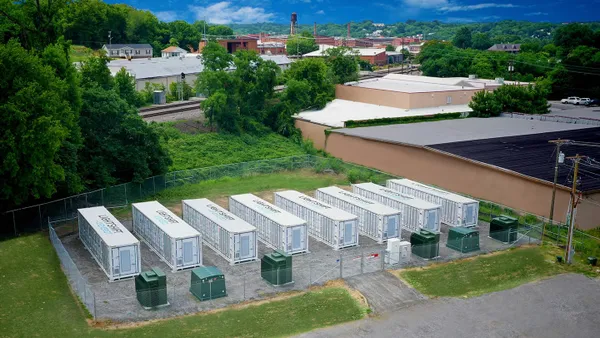The PJM Interconnection on Friday asked federal regulators to lead settlement talks to resolve eight pending complaints against the grid operator by power plant owners over penalties for failing to meet their capacity obligations during Winter Storm Elliott.
The Federal Energy Regulatory Commission should appoint one or more settlement judges to help PJM, the complainants and intervenors resolve as much of the non-performance charge disputes as possible, the grid operator said.
About 200 market participants face roughly $1.8 billion in penalties for falling short of their required power deliveries on Dec. 23 and 24 when PJM issued emergencies as electricity supplies were barely keeping up with demand, according to a fact sheet from the grid operator.
The penalties sparked a raft of complaints from generators, including one from LS Power and other power plant owners in Illinois who owe about $275 million in penalties. More complaints may be filed at FERC.
“There is value to a prompt resolution of these heavily contested non-performance charges, leaving some amount of room for a principled resolution of the disputes, in a manner that does not lead to market disruption, defaults, bankruptcies, and the physical loss of assets,” PJM said.
PJM said it plans to answer each complaint and show that in each case the assessed non-performance charges follow its tariff; that the relevant tariff provisions are just and reasonable, assuming they are even open to challenge; and that PJM properly invoked its emergency procedures.
However, there are benefits to a quick resolution to the dispute, according to PJM.
“These disputes, considering the complaint, rehearing and appeal processes, could hang over the PJM market for years, affecting market participants’ conduct in ways that may be irreparable and not always desirable,” the grid operator said.
The capacity market is designed to signal the need for new capacity resource investment, according to PJM, which operates the grid and wholesale power markets in 13 Mid-Atlantic and Midwestern states and Washington, D.C.
“The expectations of the financial and investment community accordingly are an important backdrop to the operation of this market,” PJM said. “Timely, consensual resolution of these disputes thus could, potentially, help support the long-term health of the resource adequacy construct in the PJM region.”
FERC earlier this month approved a PJM proposal that allows power plant owners and others to continue participating in the grid operator’s markets when they default, under certain conditions.
At the peak of Winter Storm Elliott, about 47,000 MW were unexpectedly offline in PJM’s footprint. About 63% of all outages were natural gas-fired power plants, 28% was coal, 4% oil, 2% nuclear, 1% hydroelectric and about 1% “other,” according to the grid operator’s fact sheet.
The outages were mainly caused by power plant equipment failures, along with failure to start, units tripping offline and temperature-related failures, according to PJM’s preliminary review.














